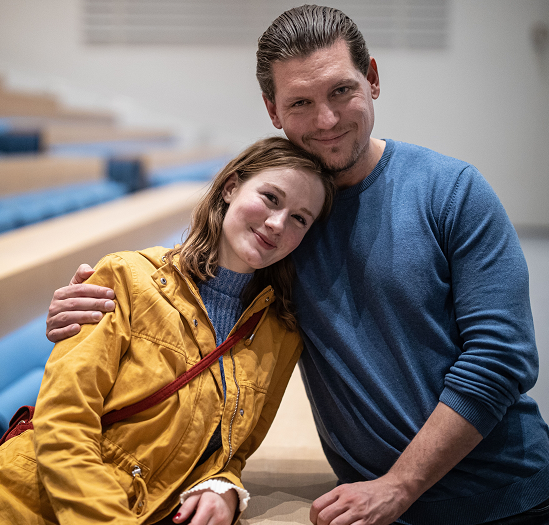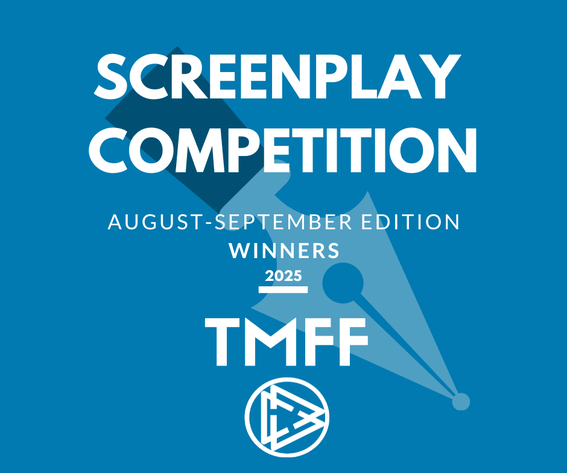This month, our jury had the very difficult task of deciding a winner from six excellent films. Ultimately, it was a 23-minute-long unbroken close-up taking place during a school shooting that won the biggest prize – Incident at School. Its director, Jacob Thomas Pilgaard, is no stranger to TMFF – having won our 2017 Film of the Year with his excellent Behold, Such Clown.
JL: Jacob, many congratulations for this remarkable achievement! I see that the awards and recognitions have been piling up nicely – how happy are you with the way that Incident at School has been received?
JTP: Very happy. And very surprised! Again really. I always seem to be surprised by the appreciation for my films internationally. This short being no exception. You just kinda try to do the film you wanna do and try to put some emotions into it. I figured the US festivals might pick it up due to the topic, but then it went on and got selected for the Oscar festivals in Japan, India, South Africa and Poland, and I really didn’t see that coming.
JL: What would you say was the first element that came to you in the thought process of making this film? Was it the unbroken shot, the school shooting as a backdrop, the emotional reconnection or all of them together?
JTP: I guess it was the unbroken shot. I kinda try to challenge myself and not repeat myself, and I wanted to do something that either worked or didn’t, you know. There was no “hiding” behind music or fixing something in the editing. And also, it made sense to just go full circle for my growing fondness for long takes. I think that the length of my takes has increased over the years and together with my regular editor Steen Bech we were already heading in the direction of decreased tempo in the cutting. “The casting of an innocent woman” was rather slow on purpose to let the audience feel the horror the character goes through, and well, I just seem to prefer this tempo. And I guess my next film will be more like the Casting film stylistically.
JL: How different is it to direct a film that is practically a single unbroken shot, compared to a more conventional approach that uses frequent cuts?
JTP: Quite different. And fun. And really challenging. It all came down to getting Cecile prepared. I think the script is 21 pages, and she had to remember all of it while simultaneously navigating in shots being fired, phone calls, the other actors in the room etc. I have no idea how she was able to pull it off, really, but it was so nice working with her. She really gave everything she could. It was fun rehearsing and setting up the shot. It may look simple, but it took 5-6 hours to get everything ready, setting up the camera and the light and putting speakers in the auditorium that we used to do all the sound of the gunshots etc—and getting the timing with the phone calls in order. A lot of moving parts, I can tell you!
JL: Incident at School is absolutely terrifying, and one of the contributing elements is a lack of any sort of musical ornaments. How did this decision come by?
JTP: That was one of the first decisions. No music. Again, I wouldn’t allow myself the chance to hide any weak parts in Post. You know, “oh the minute is boring, let’s put some music on to fix it”. And I was quite certain from the start that any non-diegetic sound would ruin the mood, the entire film in fact, rather than make it more terrifying. And it would make it less…naturalistic? Less realistic, I think. What you see is what you get, the CU of Cecilie. I don’t think I would have used music even it had been a feature film.
JL: Perspective is such an important matter, and the fact that we only see the main character reacting to stimuli, with only the benefit of sound on our side, makes the audience more involved by asking them to ‘co-create’ that which is not seen. How important do you think is this process of asking the audience to use their imagination, rather than giving them everything on a plate?
JTP: Very important. Most recently, I think we all learned that lesson from “Son of Saul”. The things not seen are always the most terrifying. And also, I was never really interested in showing the shooter—such a remarkable film. Also, the focus of the film is the relationship to the mother. Family is always the center of my films, so that’s where the audience needed to be, witnessing their conversation. Any cuts to some of the other students or to the shooter would have lessened the impact of the conversation.
JL: What a performance from Cecilie Elisabeth Bogø Bach! She was our clear winner in the Best Actress category. Since she is the make-or-break element of your project, what were you looking for from the actress to play the role, and how happy are you with the end result?
JTP: To be quite honest, I only did the film because I knew Cecilie would be able to do what she did. Prior to this, she had only done a small part in another short I made prior to “Incident” so it’s her first leading role. I am happy that the audience appreciates her performance. We did two takes of the film and used the second take, having fixed some timing after the first take. Believe me: she was NOT able to do a third take. She was completely exhausted. I was also exhausted, to be honest. It was quite intense looking at the monitor for such a long shot giving cues at the same time. I think it is worth mentioning that Cecilie has won 5 awards so far for the film. I am really happy on her behalf.
JL: With the structure, sparse cast and shooting style, this feels like a very coronavirus-friendly project. Did you film it during the harder days of the pandemic?
JTP: Fun fact – we shot the film on Sunday 8th of March in 2020 at the University in Odense. While we were shooting, the security on Campus closed everything down due to the Pandemic, and we had no idea. After wrap, we met the guard, and he was like “you are not supposed to be here…” Three days later, our PM closed the entire country. So, we were really, really lucky that we got to shoot the film that very last day – if not, we couldn’t have shot the film for like 6-7 months, I think. The simplicity of it all was mostly due to the fact that no one wanted to finance the film. In the end, I was getting tired of all the bureaucracy and just decided to finance the movie myself…problem fixed.
JL: Any other projects that you’re currently working on?
JTP: Well, yes, currently, I am working on the new Bille August feature as the Extras Coordinator. It is such a joy working with Bille and his team. And then I have written a new short, and I am trying to somehow get a debut feature greenlighted. Cecilie is intended for the leading character, and I really do hope we will get the chance to work together again.
JL: Thanks so much for your time, Jacob – it’s always a pleasure! Keep making great films, and we will look forward to watching them!
JTP: Thank you for your constant support of my film!









Leave a reply